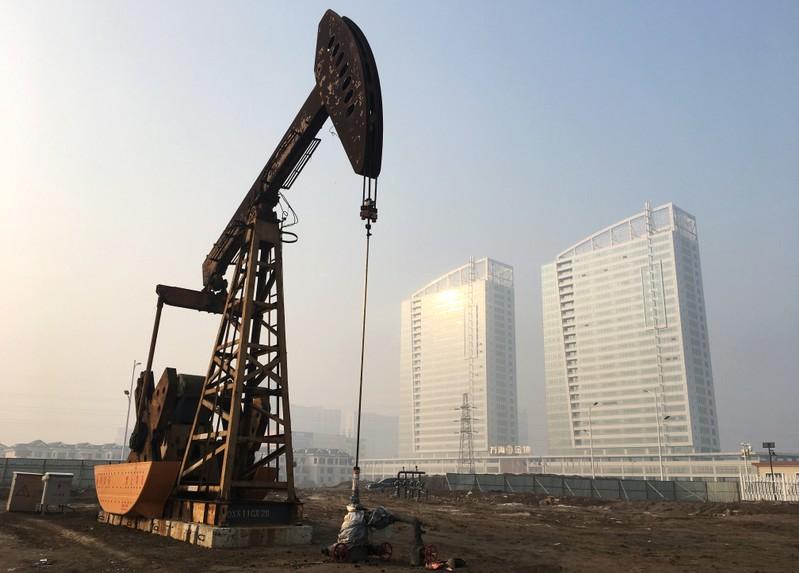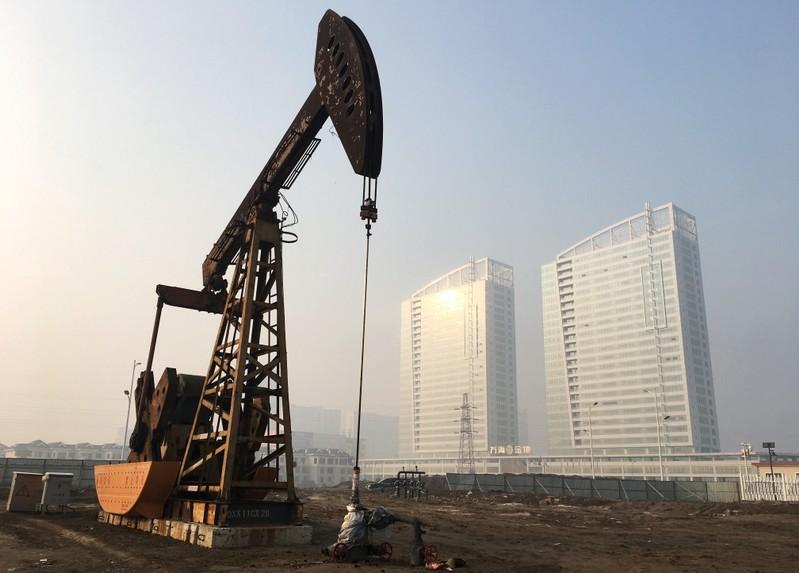
By Stephanie Kelly
NEW YORK (Reuters) - Oil prices edged lower on Thursday after a larger-than-expected rise in U.S. crude stockpiles and a series of weak economic figures, although a drop in fuel inventories helped offset the decline.
Global benchmark Brent crude fell 8 cents to $59.34 a barrel at 1:16 p.m. ET (1716 GMT). U.S. WTI crude also was down 8 cents, to $53.28 a barrel.
U.S. crude inventories soared by 9.3 million barrels in the week to Oct. 11, the U.S. Energy Information Administration said, far surpassing estimates for a build of 2.8 million barrels last week.
The rise was the result of a reduction in refining output for the week to its lowest capacity use nationwide since Hurricane Harvey in September 2017. Refining capacity use fell to 83.1% as refiners shut in capacity across the country.
The greater-than-anticipated fall in gasoline and diesel inventories offset the rise in crude stocks. Overall imports have fallen, in part due to sanctions imposed on Chinese shipping firm COSCO that have raised freight costs.
“Inventories have built by a whopping 9.3 million barrels, led by the refinery utilization rate dropping to its lowest since Hurricane Harvey in September 2017,” said Matt Smith, director of commodity research at ClipperData in Louisville, Kentucky.
“One saving grace for the bulls is that the drop to such a lowly level of refining activity has helped to encourage solid draws to both gasoline and distillate inventories,” he said.
Impact Shorts
More ShortsThe United States imposed sanctions on COSCO Shipping Tanker (Dalian) Co and subsidiary COSCO Shipping Tanker (Dalian) Seaman & Ship Management Co for allegedly carrying Iranian oil.
Adding to concerns about the global economy, and therefore energy demand, U.S. retail sales fell for the first time in seven months, while housing starts and industrial output dropped as well. Earlier data showed a moderation in job growth and services sector activity.
“If we see more indications of slowing demand, I think the market is going to continue to sink lower,” said Gene McGillian, vice president of market research at Tradition Energy in Stamford, Connecticut.
Brexit developments helped limit oil’s decline. Prime Minister Boris Johnson said Britain and the European Union had agreed a new deal for Britain to leave the block. Johnson urged lawmakers to approve it at the weekend.
Analysts have said any agreement that avoids a no-deal Brexit should boost economic growth and oil demand.
(Additional reporting by Stephanie Kelly and Laila Kearney, Bozorgmehr Sharafedin and Jessica Jaganathan; Editing by Edmund Blair and Chris Reese)
This story has not been edited by Firstpost staff and is generated by auto-feed.
)